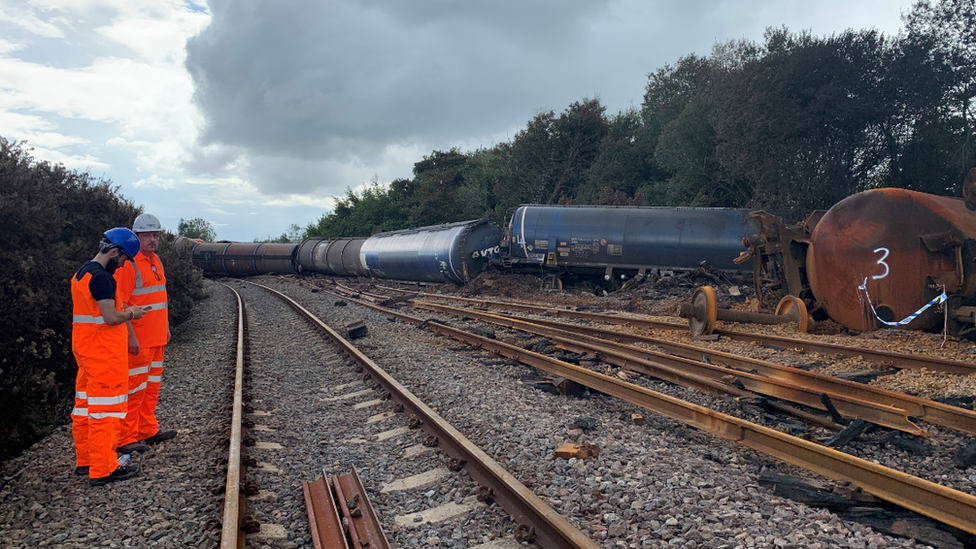Llangennech derailment: 'Devastation' at crash site
- Published
Langennech rail crash recovery "will be complex and challenging"
A train derailment in Carmarthenshire has left a scene of "devastation" and "significant" damage to infrastructure, a rail boss has said.
Network Rail's Bill Kelly described the clean-up operation as a "complex and challenging" task.
Ten wagons, carrying up to 750 tonnes of diesel, came off the tracks at Llangennech last week, causing a fire that could been seen for miles.
Work started to remove wreckage on Thursday and could take until Monday.
Mr Kelly said it will be a "complicated and complex process", adding: "I've never seen a site with this level of devastation."
He said it was "too early to speculate" on the cause of the crash and stressed a full investigation would be held.
"It is a significant derailment. I have never seen rail infrastructure damaged to this degree," he added.
About 300 people had to be evacuated from their homes after it happened.
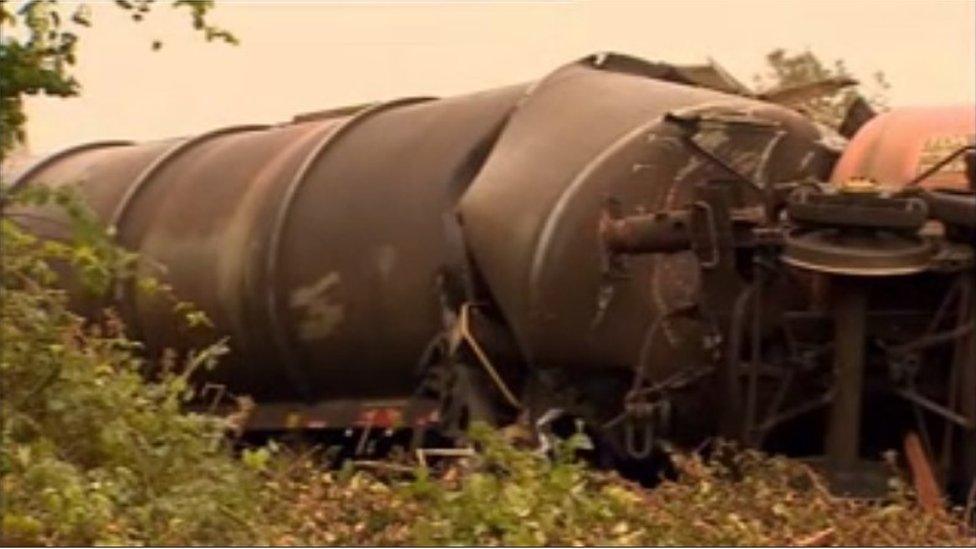
Network Rail officials believe it will be a long time before the infrastructure is repaired
Ten wagons, each containing up to 75 tonnes of diesel, derailed in the crash.
Oil spilled into the Loughor Estuary creating environmental concerns at a site of special scientific interest.
Mr Kelly said workers were "reasonably confident" they had contained the spill.
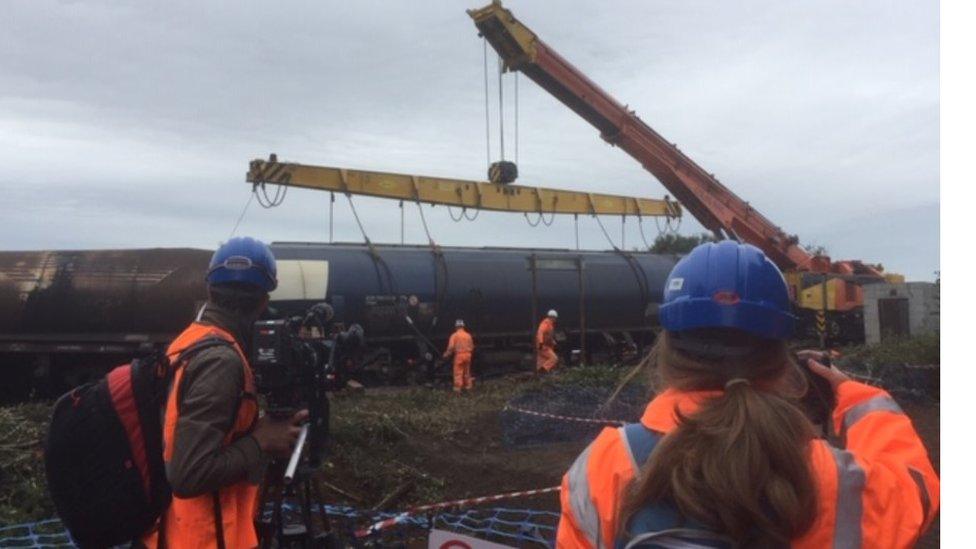
The clearance work is expected to take at least four days
"The recovery work, we are hoping will be completed by Sunday or Monday."
However, he said repairing the tracks will come after ensuring there is no further environmental impact.
Llangennech train fire: Wreckage on the rail tracks
The 10 wrecked wagons will be lifted on to a flat bed train carriage. Each weighs 30 tonnes when empty, with the Kirov crane lifting them having a capacity to pick up 125 tonnes.
Natural Resources Wales has also confirmed oil has spread to Crofty in Swansea, four and a half miles away.
People have been warned to avoid contact with water in contaminated areas.
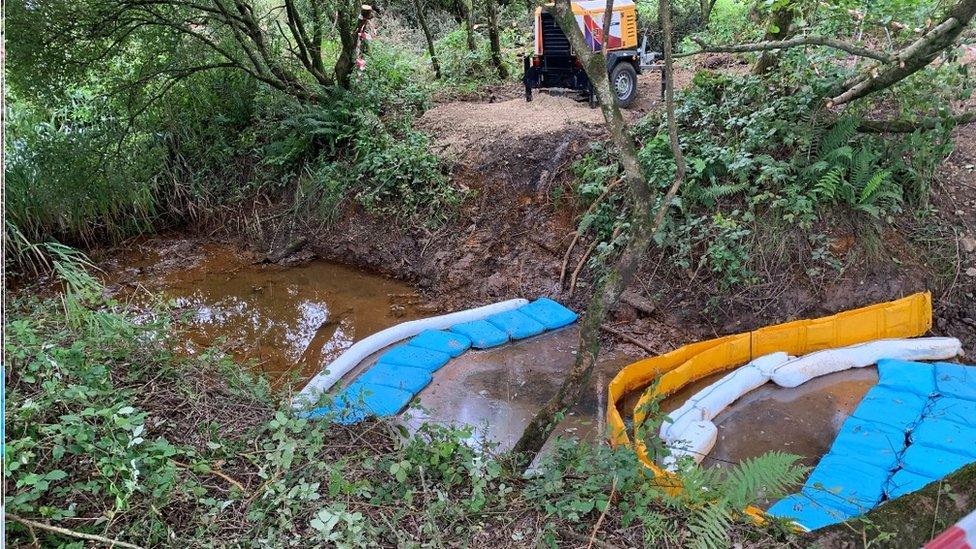
Efforts are being made to stop diesel spreading in the river
- Published27 August 2020
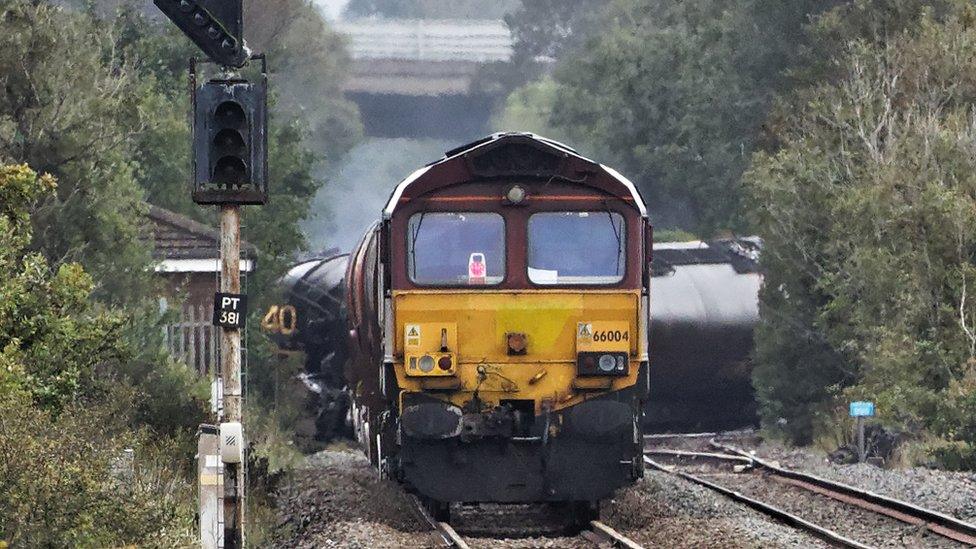
- Published28 August 2020
